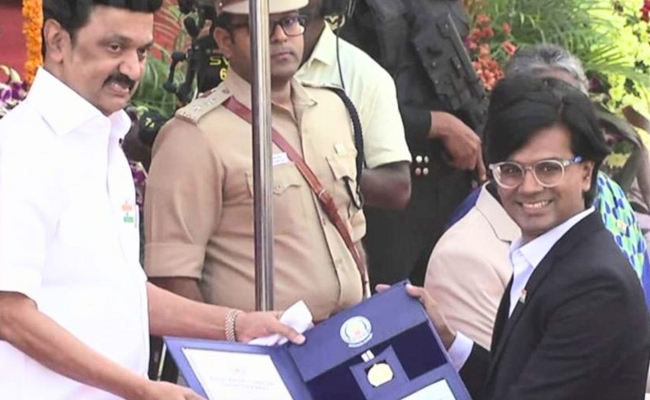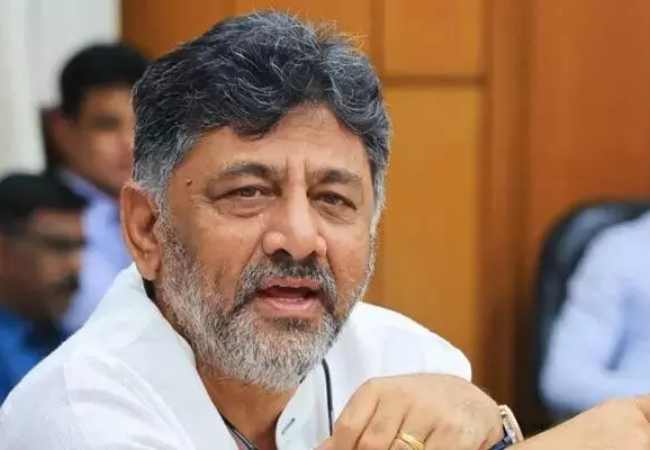New Delhi (PTI): The layer of early-morning fog over the Indo-Gangetic plains in north India thinned in some parts on Wednesday, officials said.
Satellite imagery showed a reduction in fog over Bihar, eastern Uttar Pradesh, northern Madhya Pradesh and Delhi.
However, dense fog continues to prevail over parts of Punjab, Haryana, western Uttar Pradesh and Rajasthan.
A spokesperson for the Indian Railways said 20 trains arriving in Delhi were delayed by up to five hours due to foggy weather.
At 5:30 am, visibility levels stood at 25 metres in Patiala, Ambala and Bareilly, 50 metres in Hisar, Churu and Bahraich and 200 metres in Lucknow and Purnea.
At the Palam Observatory near the Indira Gandhi International (IGI) Airport in Delhi, visibility was limited to only 200 metres.
Early-morning foggy weather in north and northeast India has heavily impacted road, rail and air traffic over the last fortnight.
On Monday, five flights were diverted and more than 100 delayed at the Delhi airport.
Civil Aviation Minister Jyotiraditya Scindia said on Monday that all stakeholders are working round-the-clock to minimise fog-related disruptions.
The Delhi airport was asked to expedite the operationalisation of the CAT III-enabled fourth runway in addition to the existing CAT III-enabled runways.
Generally, CAT III compliance refers to flight operations in low-visibility conditions.
As the blinding fog lowered visibility levels at several places on Tuesday night, the India Meteorological Department (IMD) advised people to avoid unnecessary travel and take precautions while driving.
The IMD said dense to very dense fog conditions are likely to prevail over north India for the next five days.
It said cold-day to severe-cold-day conditions would persist over the northern plains for two more days.
"Cold wave to severe cold wave conditions are likely to continue over northwest India for five days," it said.
In the plains, the MeT office declares a cold wave if the minimum temperature dips to 4 degrees Celsius or when the minimum temperature is 10 degrees or below and is four-and-a-half notches below the normal.
A severe cold wave is when the minimum temperature dips to 2 degrees Celsius or the departure from the normal is by more than 6.4 degrees.
A cold day is when the minimum temperature is less than or equal to 10 degrees Celsius below the normal and the maximum temperature is at least 4.5 degrees below normal.
A severe cold day is when the maximum is 6.5 degrees Celsius or more below normal.
Let the Truth be known. If you read VB and like VB, please be a VB Supporter and Help us deliver the Truth to one and all.
Bengaluru (PTI): Karnataka has proposed a new Information Technology Policy for 2025–2030, offering extensive financial and non-financial incentives aimed at accelerating investments, strengthening innovation and expanding the state's tech footprint beyond Bengaluru.
The Karnataka Cabinet gave its nod to the policy 2025–2030 with an outlay of Rs 445.50 crore on Thursday after the Finance Department accorded its approval.
The policy introduces 16 incentives across five enabler categories, nine of which are entirely new, with a distinctive push to support companies setting up or expanding in emerging cities.
Alongside financial support, the government is also offering labour-law relaxations, round-the-clock operational permissions and industry-ready human capital programmes to make Karnataka a globally competitive 'AI-native' destination.
According to the policy, units located outside Bengaluru will gain access to a wide suite of benefits, including research and development and IP creation incentives, internship reimbursements, talent relocation support and recruitment assistance.
The benefits also include EPF reimbursement, faculty development support, rental assistance, certification subsidies, electricity tariff rebates, property tax reimbursement, telecom infrastructure support, and assistance for events and conferences.
Bengaluru Urban will receive a focused set of six research and development and talent-oriented incentives, while Indian Global Capability Centres (GCCs) operating in the state will be brought under the incentive net.
Incentive caps and eligibility thresholds have been raised, and the policy prioritises growth-focused investments for both new and expanding units.
Beyond incentives, the government focuses on infrastructure and innovation interventions.
A flagship proposal in the policy is the creation of Techniverse -- integrated, technology-enabled enclaves developed through a public-private partnership model inside future Global Innovation Districts.
These campuses will offer plug-and-play facilities, artificial intelligence and machine learning and cybersecurity labs, advanced testbeds, experience centres, and disaster-resistant command centres.
There will also be a Statewide Digital Hub Grid and a Global Test Bed Infrastructure Network, linking public and private research and development, and innovation facilities across Karnataka.
The government has proposed a Women Global Tech Missions Fellowship for 1,000 mid-career women technologists, an IT Talent Return Programme to absorb experienced professionals returning from abroad, and broad-based skill and faculty development reimbursements.
Shared corporate transport routes in Bengaluru and tier-two cities will be designed with Bengaluru Metropolitan Transport Corporation and other transport entities to support worker mobility.
The government said the policy is the outcome of an extensive research and consultation process involving TCS, Infosys, Wipro, IBM, HCL, Tech Mahindra, Cognizant, HP, Google, Accenture and NASSCOM, along with sector experts and stakeholder groups.
It estimates an outlay of Rs 967.12 crore over five years, comprising Rs 754.62 crore for incentives and Rs 212.50 crore for interventions such as Techniverse campuses, digital grid development, global outreach missions and talent programmes.





